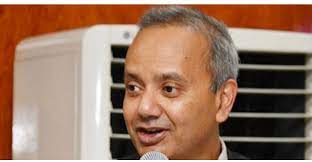Subsidy removal won’t spike inflation, says World Bank
World Bank Country Director for Nigeria, Shubham Chaudhuri, yesterday, spoke extensively on the planned removal of subsidy on Petroleum Motor Spirit (PMS), lingering foreign exchange crisis, rising sovereign debts and other macroeconomic issues, suggesting that the removal of subsidy may not remarkably cause a spike in inflation.
Speaking during a courtesy visit to The Guardian, Chaudhuri, who has served in his current capacity since 2019, said historical data, including statistical analyses carried out by the World Bank, have not shown that there would be a remarkable rise in inflation should Nigeria remove fuel subsidy and PMS price increases.
The Minister of Finance, Budget and National Planning, Zainab Ahmed, had last week said the government would scrap the controversial social scheme next year and replace it with N5,000 monthly transportation grants to about 40 million poor Nigerians for a year.
The statement has expectedly raised fresh debate on the subsidy scheme, which is said to have gulped trillions of naira. Labour, the organised private sector (OPS) and other stakeholders have described the proposal as absurd.
The Nigerian Labour Congress (NLC) said the plan was an open invitation for unrest and revolt, while the Trade Union Congress (TUC) expressed shock that government could come up with the idea when negotiations on subsidy removal were yet to be concluded. The Senate, on its part, said the grant proposal was not captured in the 2022 budget, wondering how the government intends to implement it.
Beyond the absurdity, there is a question as to which, between PMS subsidy and transportation grant, is most cost-effective for the government. With the Minister’s estimations, the country will spend between N180 billion and N240 billion monthly on the transport grant programme as against N150 billion projected spending on PMS subsidy, which suggests the deficit created by subsidy payment would not still go away, at least for a year.
This new proposal comes just as the Conditional Cash Transfer Programme has come under intense scrutiny. President Muhammadu Buhari disclosed that 1.6 million poor and vulnerable households, comprising more than eight million individuals benefit from the cash transfer programme. But his critics have punctured the figures. There has been flip-flops from his cabinet members on the numbers reached and amounts disbursed.
On the new proposal, there are questions on the credibility of data the government will use in dispensing the transportation grants. The most basic source of data, the national census, has not been conducted in the past 15 years. The last exercise – carried out in 2006 – was mired in controversy and protests.
THE World Bank Country Director, who engaged The Guardian management and editorial team on the issue and related matters for about two hours at the newspaper’s corporate headquarters in Lagos, was not specific on the subsidy exit strategy, but he was certain the programme is not sustainable anymore even though there was ‘no answers’ to the lingering questions it has raised.
He, thus, suggested a healthy dialogue as a necessary route to achieving “a national consensus” on the exit strategy and how to manage the impacts its eventual removal could leave on struggling Nigerians. He insisted that the scheme does not benefit the majority of poor Nigerians, as most public transport vehicles run on diesel.
Contrary to the World Bank executive’s position, a previous report on data analysis by The Guardian had established a strong positive correlation between PMS price and inflation rate, which has increased the level of poverty in the country.
According to the data trend, Nigeria experienced stable or falling inflation in periods when the PMS price was held constant, suggesting that a likely hike in the price as a result of subsidy removal could hit more millions of Nigerians, who are barely surviving, below the belt and widen the inequality gap.
In the data analysis, extremely high PMS prices were also marked with extraordinary fast inflation rates. For instance, between 1986 and 1993 when the official pump price was increased from 20 kobo to N5, inflation increased from 5.7 per cent to 57.2 per cent.
The 2,400 per cent increase in the price of PMS in the seven years triggered (alongside other factors) a 51.5 percentage point jump in the inflation rate. The economy witnessed the fastest inflation and the steepest rise in PMS pump price then.
In one fell swoop on November 8, 1993, the interim administration of Chief Ernest Shonekan increased the price from 70 kobo to N5 (about 614 per cent). Prices of essential commodities responded, leaping to an all-time high of 72.8 per cent inflation rate after a year.
All through history, the data followed a fairly similar trend. The inflation rate had moderated from 13.7 per cent in 2010 to 10.8 per cent, translating to a year-on-year change of -3.7 per cent until Goodluck Jonathan tinkered with the price of PMS, which had remained at N65 per litre since 2007 when the late Umaru Musa Yar’Adua reduced the going price immediately after Olusegun Obasanjo left.
The general price crisis that followed the N85 per litre Jonathan settled for after a labourious negotiation with the organised labour raised the headline inflation in 2012 by 1.38 per cent.
From 2012 to 2016, the steepest yearly inflation growth was 0.95 per cent. In 2013 and 2014, the change in headline inflation was negative. But the 67 per cent pump price jump, which saw a litre selling for N145, altered the inflation figure in a leap. In that same year, inflation jumped from a single digit to an average of 15.7 per cent.
From 1973 when Gen. Yakubu Gowon’s regime moved pump price from 6 kobo to 8.45 kobo, till date, PMS price and inflation curves tend to move in the same direction and at a similar speed.
A rising inflation has also been associated with escalating unemployment. As the cost of PMS and inflation growth increased in 2012, the number of unemployed Nigerians also increased from six per cent in 2011 to 10.6 per cent. A similar trend played out from 2015 transiting to 2016, pump price increased by about 70 per cent in 2016 just as inflation growth escalated by 74 per cent. Expectedly, unemployment followed with about 49 per cent increase.
Similarly, the past year has witnessed a consistent increase in the cost of PMS and other energy sources. Inflation and unemployment rate have remained extremely high with the former hitting 18.17 per cent before a gradual retreat that saw it moderating to 17.75 per cent in June.
The country’s headline inflation rate had accelerated consistently in the past three years; so is the number of people that have lost jobs or are unable to secure employment. The rate of unemployment in the country, which is currently facing its worst labour market crisis, was 33.3 per cent at the end of last year.
Yesterday, the visiting World Bank boss was hopeful Nigeria could turn the economy around with appropriate policies. He said: “Nigeria has the potential to become one of the global leaders” but noted that it can only make remarkable progress if it takes courageous steps to reform the economy, take advantage of emerging sectors like the digital economy and agro-business.
According to him, “business as usual” cannot trigger the sort of growth that will take the economy out of the woods and position it for accelerated growth. He observed that economic development could only happen if the economic growth surpasses the current 2.6 per cent population growth.
Chaudhuri lamented that the country “is on top of tables of all the wrong data”, including human development index (HDI) and child mortality rate, adding that the government needs more headroom to spend on public services to reduce poverty and make life better for the majority.
The visitor said the World Bank is ready to partner with the government “to eliminate poverty and make life better for the majority”. He noted, however, that it is up to the government to accept its recommendations.
“We will put ideas on the table but the decision will always depend on the government. We can only persuade, but there are times we can say no. We can say no when you need our financing and we are unable to agree on the terms,” he said.
THE Managing Director/Editor-in-Chief of The Guardian, Martins Oloja, who received the country director and his team, said it was worrisome that Nigeria is slipping into a debt crisis a few years after it got debt relief. Oloja also wondered why the political class is aloof to the challenges faced by the majority and advised the World Bank to scale up its project monitoring.
The Editor of The Guardian, Alabi Williams, also said it was difficult to remove the PMS subsidy without substantial negative repercussions. He objected to the claim that the subsidies do not benefit the poor, arguing that “poor Nigerians directly benefit from the low price.”
He called on the World Bank to put pressure on the government to fix the refineries to create jobs and save part of the foreign exchange expended on fuel importation.
Responding, the World Bank chief said building or fixing existing refineries would not stop Nigeria from making a choice on what to do with the trillions of naira spent on subsidy. He said the country would need to choose whether to continue to spend its scarce resources on PMS consumption subsidy or channel it to education, primary health care and other important social services.
He stressed that Nigeria could not do without making the choice, adding that resource allocation decisions are critical to the growth and development of any country.
He also advised that the political elite would do better in advancing their interest if they work at “growing the pie” rather than scrambling for a share in the small pie. He noted that insecurity, manifesting in banditry and kidnapping is a worrisome trend with enormous impacts on the economic outlook of the country.
Chaudhuri also spoke on inflation and exchange rate volatility, saying FX restriction and recent border closure have serious impacts on fast inflation. He said the supply side of the FX market could have been much better.
ACROSS developing countries, critics of the World Bank and International Monetary Fund (IMF) have accused the institutions of fueling poverty – the very opposite of their mandate – with their conditionalities. For much of the challenge in Nigeria’s FX market is traced to the implementation of the Structural Adjustment Programme (SAP), a policy option the Bretton Woods Institutions sold to the country in the 1980s. Elsewhere in Africa, there are arguments that the institutions’ involvement in local economies may have done more ills than good.
But the Country Director said the bank does not impose policies on its members and that most failures come from half or poor implementation of recommendations. He picked on the case study of Indonesia, a country once in the same economic bracket as Nigeria, arguing that its adoption of neoliberalism in line with the recommendation of the World Bank has paid off in terms of prosperity and leapfrog the country in terms of economic development. He noted that there is potential in its policy recommendation to lift Nigeria.
“With the right policies and implementation, we think Nigeria can dramatically achieve growth in a way that lifts people out of poverty. We can lay out potential but a lot depends on how the policies are implemented, and whether they are sustained. Last year, we were very hopeful PMS subsidy would be removed. There was an adjustment, and that was what led to the fast recovery the country experienced,” he said.




